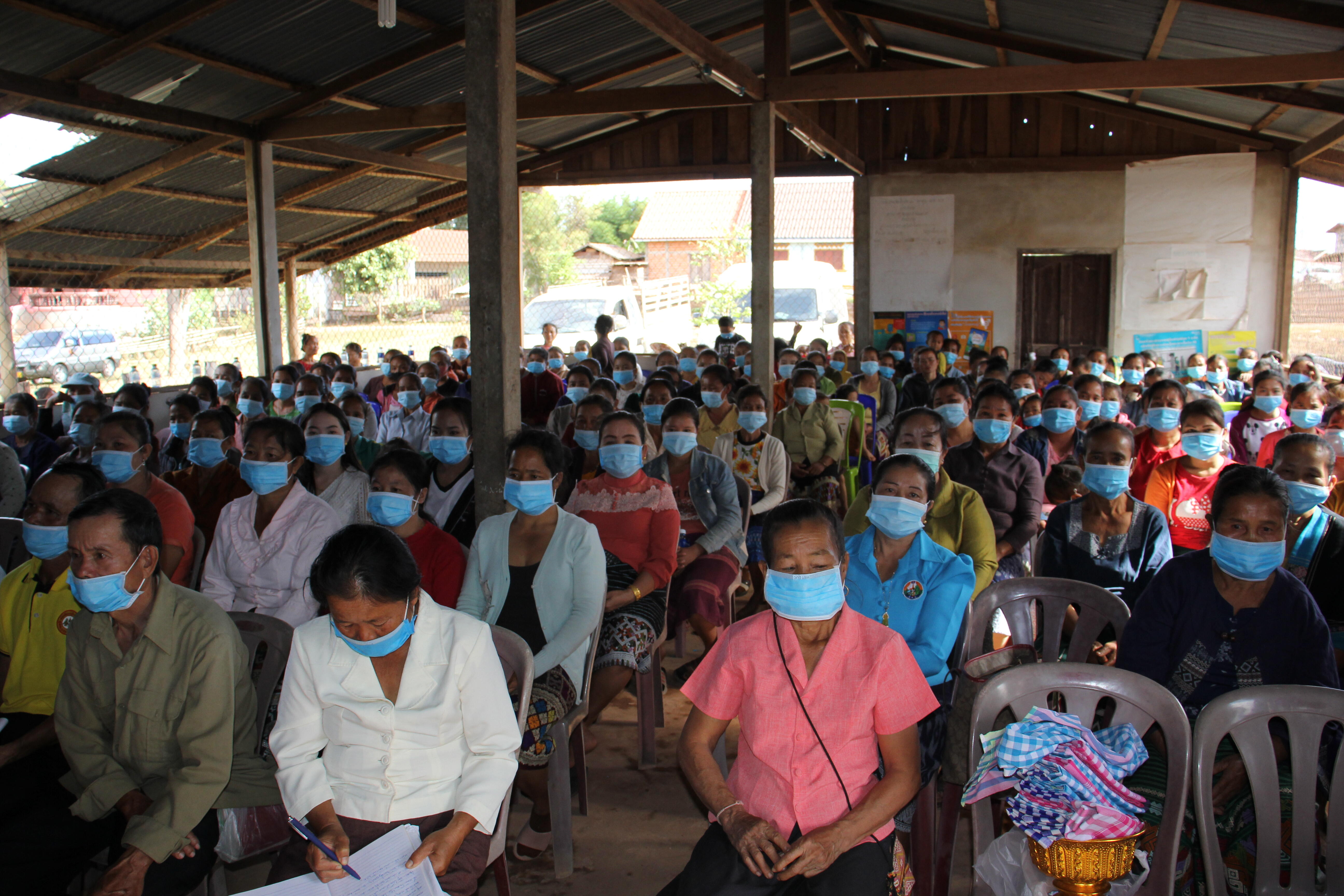Last year, marked the twenty-fifth anniversary of the Beijing Platform for Action. It was intended to be ground-breaking for gender equality. Instead, with the spread of the COVID-19 pandemic the gains made in the past decades are at risk of being rolled back.
The pandemic is deepening pre-existing inequalities. We know now that COVID-19 impact goes well beyond the health of a society, the economic fallout is the heaviest impact in Laos and within this women and girls will be most impacted.
As Laos navigates COVID-19 and works to peace and prosperity inside the house and in society, we must respect, protect and uphold the rights of women and girls. These rights are protected by international frameworks, and as noted in the follow up to the CEDAW recommendations, the Government of Lao PDR regularly monitors and reports progress.
The 3.6 million Women and Girls in Lao PDR are facing the bigger burden of the pandemic. You ask Why?
Women stand at the front lines of the COVID-19 crisis, as health care workers, caregivers, innovators, community organizers and family supporters. The crisis has highlighted both the centrality of their contributions and the disproportionate burdens that they carry.
In Lao PDR, women comprise the majority of health and social care workers: female medical doctors and midwives, represent 70% of the workforce. At the same time, the burden of care for women at home has only increased. In Laos like elsewhere the care of children who were out of school, for the elderly who needed support and ensuring the household keeps running often on smaller budgets has disproportionately fallen on women.
In Lao , 8 women out of 10 women were already in the informal sector, 4 girls out of 10 aged between 5 and 17 years old were engaged in child labour and women were doing four times more unpaid care work than men. The economic impact of COVID-19 is skewed towards jobs where women are predominantly engaged , including agriculture and service sector including tourism hotels.
In rural areas, pre-existing poverty reinforced by the COVID-19 is projected to push young girls into early marriage, early pregnancy, and higher rates of school drop-out. 4 girls out of 10 were already out of school, it is projected this could increase by as much as 5%. Young girls traditionally fall into taking on household chores or childcare to support families where both parents may have to take up work due to the economic losses.
Restricted movement, social isolation and increase in economic stress, unfortunately led to increase of emotional and physical gender-based violence. LWU call centre has noted an increase in calls requiring support for women and girls at home with their abusers.
Adolescent pregnancy, lack of access to sexual and reproductive health services and counselling, including to contraception and menstrual hygiene products, and to assisted deliveries and care for pregnant women pose a threat to sexual and reproductive rights. Maternal mortality rate could increase due to increase in unintended pregnancies. The progress made towards full antenatal care coverage risks to fall from national coverage of 62.2% down to 50.2%. The impact on the physical and emotional conditions of women and girls, especially those in the poorest households, in rural areas, amongst ethnic groups, those living with disabilities, those who have no roads to access health facilities is much higher.
Amongst the returning migrants, about 30% were females. They lost employment, livelihood and in some cases returned with urgent needs for reproductive health and psychosocial assistance. Many migrants who work in informal settings do not have access to social security schemes, and hence are more vulnerable to falling into poverty.
Especially in times of crisis, women and girls rights including reproductive health and rights must be safeguarded. Failing to do so will have direct impact on the mental and physical well-being, including increase in unintended pregnancies, more unsafe abortions and more women die from preventable causes.
Since the start of the pandemic, with leadership of NCAWMC and LWU as well as with Ministry of Health and other line ministries, UNFPA has supported the Lao Government by ensuring that the rights of women and girls are protected, here are some example of women friendly responses to COVID led by the Lao Government with support of UNFPA:
Ensuring safe motherhood and continuity of sexual and reproductive health services:
- Launching tele-health initiative for women to continue to receive Antenatal care
- Ensuring sexual and reproductive health services reach the remote areas through the mobile clinic
- Maintaining stocks of family planning commodities
- Providing PPE and relevant supplies to midwives and other medical workforce to protect them from infection
- Covid-19 responsive community based information integrated with reproductive health training
Partnerships to protect adolescent girls and build resilience:
- Creating new innovative alliances with the private sector and CSO INGOs to scale up programs that empower young girls through the Nang Noi girls groups
- Providing dignity kits in the quarantine camps as well as during the flooding, partnering with factories to prevent child labour and ensure youth employed do not engage in risky behaviour
- Launching the mobile application Noi Yakhoo that provide information for youth and adolescents
- Psychosocial support through hotlines for young boys and girls, particularly for gender based violence and reproductive health counselling
Expanding services for protection from abuse and violence:
- Establishing referral mechanism to protect women victims of violence
- Opening a new shelter to accommodate them.
- Engaging men and boys in on preventing gender-based violence and promoting sexual and reproductive health and rights.
************
UNFPA, the UN's sexual and reproductive health agency, works in over 150 countries including Lao PDR, to achieve zero maternal deaths, zero unmet need for family planning and zero gender-based violence and harmful practices towards women and girls.


